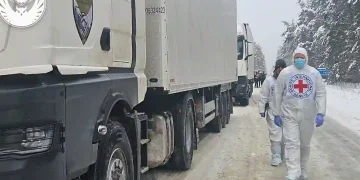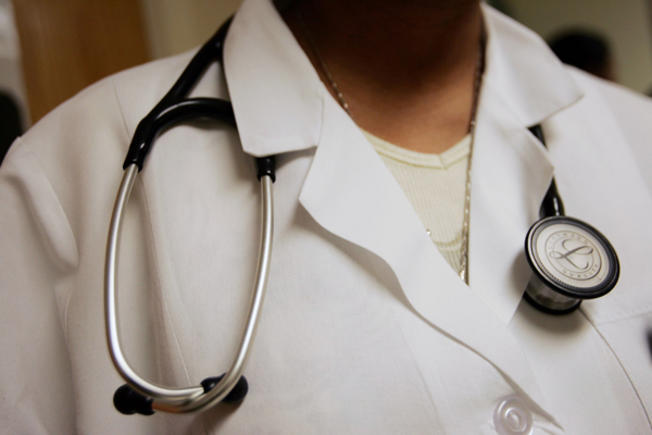In recent months, Nigeria has witnessed a troubling pattern of sudden deaths that have shaken our communities. From the tragic passing of beloved icon Onyeka Onwenu after a performance in Lagos, to the death of nurse Asma’u Lawali Bungudu while on duty, to ordinary citizens collapsing at airports and celebrations – these incidents highlight a critical gap in our emergency response knowledge.
As a medical expert, I can state with certainty that immediate cardiopulmonary resuscitation (CPR) could have potentially saved some of these lives. Yet, when someone collapses in Nigeria, the typical response is often to record videos, create a spectacle, or simply stand by helplessly, rather than taking life-saving action.
What Happens During Cardiac Arrest
When the heart suddenly stops beating effectively, blood stops circulating oxygen to the brain and other vital organs. Brain damage begins within 4-6 minutes, and death can occur within minutes if no action is taken. CPR buys precious time by manually pumping blood through the body until professional help arrives.
The CPR Gap in Nigeria
The incidents described reflect a dangerous knowledge gap. When Mr. Akinyele collapsed during his wife’s birthday celebration, or when the passenger slumped at Nnamdi Azikiwe International Airport, bystanders largely watched helplessly or recorded a video to be shared on social media rather than initiating CPR. In the airport case, medical assistance reportedly took 13 minutes to arrive, well beyond the critical window for successful resuscitation. There is no reason for large entities like the airport, companies, churches or malls not to have a First Response Plan
How to Perform CPR: A Simple Guide
An expert teaches how to perform manual CPR
CPR doesn’t require medical training to perform effectively (A Simple video online can provide a step-by-step guide to making a difference) https://youtu.be/Plse2FOkV4Q
Here’s how any Nigerian can perform basic CPR:
- Check responsiveness: Tap the person’s shoulder and shout, “Are you okay?”
- Call for help: Ask someone specifically to call emergency services (112 in Nigeria) and find an AED (automated external defibrillator) if available.
- Check the airway for any blockage
- Check for signs of breathing and pulse
- Begin chest compressions:
- Place the person on their back on a firm surface
- Kneel beside them
- Place the heel of one hand on the centre of the chest (between the nipples)
- Place your other hand on top of the first
- Keep your arms straight and position your shoulders directly above your hands
- Push hard and fast at a rate of 100-120 compressions per minute
- Allow the chest to fully recoil between compressions
- Compress to a depth of at least 2 inches (5 cm)
- If possible, offer rescue breaths
- Engage another person to continue when the first person is tired
- Continue until:
- The person shows signs of life
- Emergency medical personnel arrive
- You’re too exhausted to continue
- Another trained person can take over
Mrs. Sola Oluwole-Ogunro
The Barriers We Face
Three major factors prevent widespread CPR response in Nigeria:
- Ignorance: Most Nigerians simply don’t know how to perform CPR or recognise its importance.
- Sensationalism: The impulse to record videos or create drama often takes precedence over providing help.
- Fear of involvement: Many fear legal repercussions or being blamed if the person doesn’t survive.
The Way Forward
We need a national CPR awareness campaign. Schools, workplaces, religious organisations, and community centres should offer basic CPR training. Media outlets should prioritise educational content about emergency response over sensationalising tragedies.
Most importantly, we need to shift our cultural response to emergencies. The next time you see someone collapse, remember that your immediate action could make the difference between life and death. Put the phone down, step forward, and start compressions. You might save a life – perhaps even that of someone you love.
In honour of those we’ve lost unnecessarily, let us commit to learning this simple skill that could prevent the next tragedy. Every Nigerian should be able to perform basic CPR. It’s not just a medical skill – it’s our responsibility to each other.
Mrs. Sola Oluwole-Ogunro writes from Charlotte, North Carolina, USA. She is a Clinical Social Worker with a speciality in addiction management, mental health and emergency response.

Seunmanuel Faleye is a brand and communications strategist. He is a covert writer and an overt creative head. He publishes Apple’s Bite International Magazine.





















